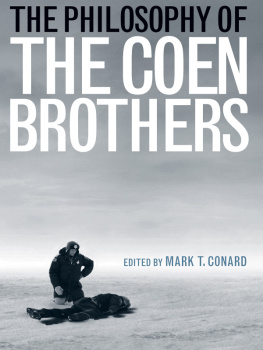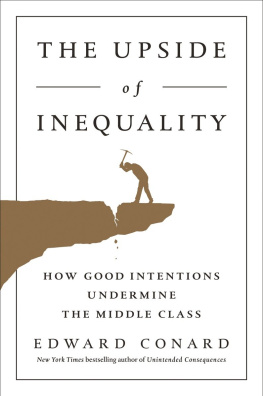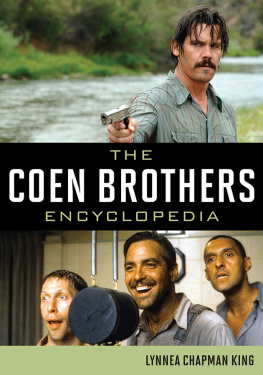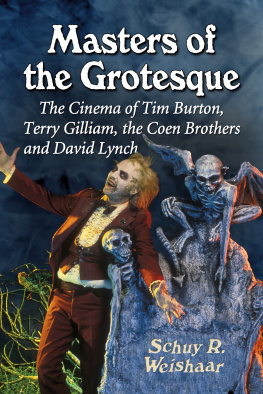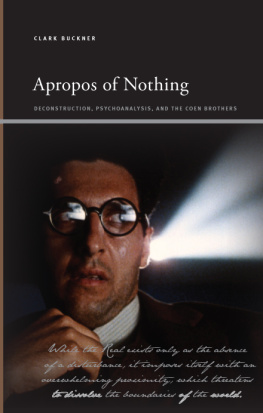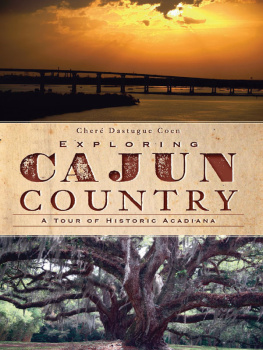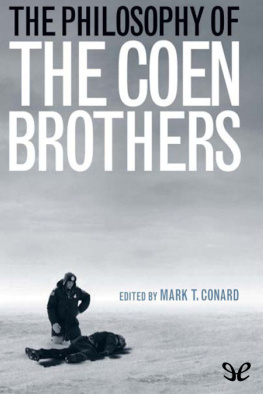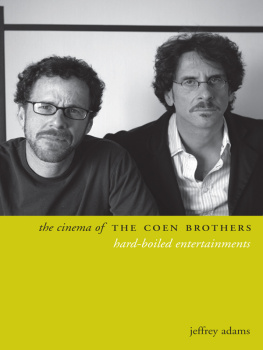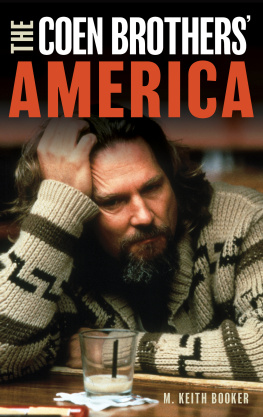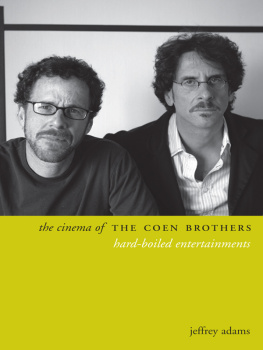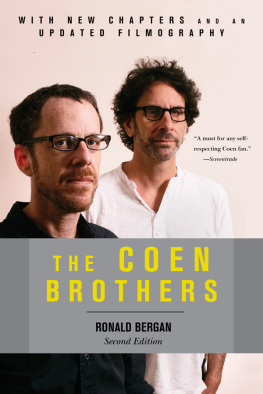THE PHILOSOPHY OF POPULAR CULTURE
The books published in the Philosophy of Popular Culture series will illuminate and explore philosophical themes and ideas that occur in popular culture. The goal of this series is to demonstrate how philosophical inquiry has been reinvigorated by increased scholarly interest in the intersection of popular culture and philosophy, as well as to explore through philosophical analysis beloved modes of entertainment, such as movies, TV shows, and music. Philosophical concepts will be made accessible to the general reader through examples in popular culture. This series seeks to publish both established and emerging scholars who will engage a major area of popular culture for philosophical interpretation and examine the philosophical underpinnings of its themes. Eschewing ephemeral trends of philosophical and cultural theory, authors will establish and elaborate on connections between traditional philosophical ideas from important thinkers and the ever-expanding world of popular culture.
Series Editor
Mark T. Conard, Marymount Manhattan College, NY
Books in the Series
The Philosophy of Stanley Kubrick, edited by Jerold J. Abrams
Football and Philosophy, edited by Michael W. Austin
The Philosophy of Film Noir, edited by Mark T. Conard
The Philosophy of Martin Scorsese, edited by Mark T. Conard
The Philosophy of Neo-Noir, edited by Mark T. Conard
The Philosophy of The X-Files, edited by Dean A. Kowalski
Steven Spielberg and Philosophy, edited by Dean A. Kowalski
The Philosophy of Science Fiction Film, edited by Steven M. Sanders
The Philosophy of TV Noir, edited by Steven M. Sanders and Aeon J. Skoble
Basketball and Philosophy, edited by Jerry L. Walls and Gregory Bassham
Copyright 2009 by The University Press of Kentucky
Scholarly publisher for the Commonwealth,
serving Bellarmine University, Berea College, Centre College of Kentucky,
Eastern Kentucky University, The Filson Historical Society, Georgetown College,
Kentucky Historical Society, Kentucky State University, Morehead State
University, Murray State University, Northern Kentucky University, Transylvania
University, University of Kentucky, University of Louisville, and Western
Kentucky University.
All rights reserved.
Editorial and Sales Offices: The University Press of Kentucky
663 South Limestone Street, Lexington, Kentucky 40508-4008
www.kentuckypress.com
13 12 11 10 09 5 4 3 2 1
Library of Congress Cataloging-in-Publication Data
The philosophy of the Coen brothers / edited by Mark T. Conard.
p. cm.(The philosophy of popular culture)
Includes bibliographical references and index.
ISBN 978-0-8131-2526-8 (hardcover : alk. paper)
1. Coen, JoelCriticism and interpretation. 2. Coen, EthanCriticism and interpretation. I. Conard, Mark T., 1965
PN1998.3.C6635P45 2008
791.4302330922dc22 2008038678
This book is printed on acid-free recycled paper meeting
the requirements of the American National Standard
for Permanence in Paper for Printed Library Materials.

Manufactured in the United States of America.

Member of the Association of
American University Presses
Acknowledgments
First, I'd like to thank the contributors to this volume for all their hard work and patience, which are clearly evident in these terrific essays. Many thanks are also due to all the good people at the University Press of Kentucky, with whom it continues to be a real pleasure to work. Last, for all their love and support I want to thank my family and friends, especially Nayia Frangouli, Brad Herling, Chris Landis, John and Linda Pappas, Yvonne Roen, Aeon Skoble, and Jerry Williams.
INTRODUCTION
Mark T. Conard
Since arriving on the cinematic scene in 1984 with Blood Simple, Joel and Ethan Coen have amassed an impressive body of work that has garnered them critical acclaim and a devoted following. Their highly original works include both comedies and dramas and cover various genres (neo-noir, the romantic comedy, the western, the gangster film). However, most, if not all, of the Coens films defy exact categorization, and they always bear the brothers unmistakable stamp. From the Irish gangster morality play Miller's Crossing (1990) to the film blanc Fargo (1996), from the neo-noir comedy The Big Lebowski (1998) to the Odyssean O Brother, Where Art Thou? (2000), the Coens never fail to have something interesting to say and always say it in a unique and entertaining fashion.
As I've already hinted, much of the Coens work can be characterized as neo-noir, whatever other styles or genres the brothers are working in. For those unfamiliar with the term, film noir refers to a body of Hollywood films from the 1940s and 1950s that share certain visual features, such as stark contrasts between light and shadow and oblique camera angles meant to disorient the viewer, as well as particular themes, such as alienation, pessimism, and moral ambiguity. Classic noirs include The Maltese Falcon (John Huston, 1941), Double Indemnity (Billy Wilder, 1944), and Out of the Past (Jacques Tourneur, 1947). Any film coming after the classic period that displays these themes and has a similar feeling to it we refer to as neo-noir. Later films, such as Chinatown (Roman Polanski, 1974), Body Heat (Lawrence Kasdan, 1981), and L.A. Confidential (Curtis Hanson, 1997), fall into this category, as do many of the Coens films. Blood Simple is a quite self-conscious neo-noir, for example, and The Man Who Wasn't There (2001) is clearly an homage to classic noir. As we'll see later, many or most of the brothers other movies can likewise be identified as noirs.
This work investigates the philosophical themes and underpinnings of the films of these master filmmakers and uses the movies as a vehicle for exploring and explicating traditional philosophical ideas. It comprises sixteen essays from scholars in both philosophy and film and media studies. The essays are written in nontechnical language and require no knowledge of philosophy or media theory to appreciate or understand.
of the volume, The Coen Brand of Comedy and Tragedy, begins with Richard Gilmore's Raising Arizona as an American Comedy, in which he argues that the aspirations for improvement of the outlaw protagonist of the film, Hi McDunnough, are quintessentially American in nature. Next, in The Human Comedy Perpetuates Itself: Nihilism and Comedy in Coen Neo-Noir, Thomas S. Hibbs claims that the threat of nihilism, often prominent in classic noir, becomes a working assumption in much of neo-noir, revealing the various quests of the noir protagonist to be pointless, absurd, and thus comic and that the most representative examples of this turn to the comedic in noir are the films of the Coen brothers. In Philosophies of Comedy in O Brother, Where Art Thou? Douglas McFarland claims that the film's comic underpinnings can best be understood through concepts of the mechanical, the contradictory, and the absurd articulated in Henri Bergson's Laughter and Sren Kierkegaard's Concluding Unscientific Postscript. Richard Gilmore discusses the hubris and fatal flaws of Llewelyn Moss as he confronts his fate in the form of the killer Anton Chigurh in

